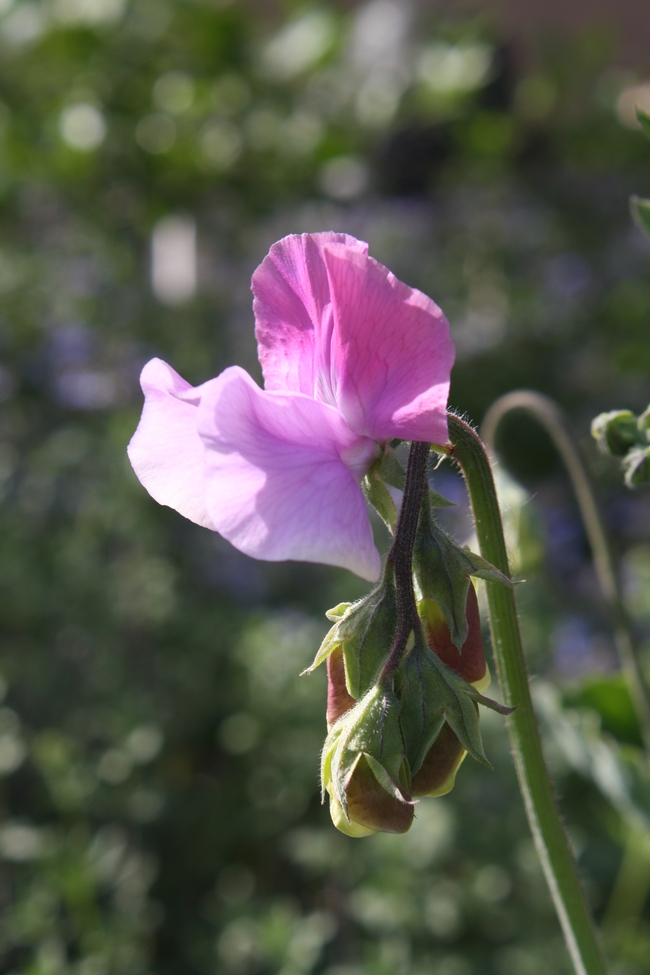Posts Tagged: October
When a 'Teddy Bear Bee' Became 'Mr. October'
We usually see male Valley carpenter bees, Xylocopa sonorina, in the spring and summer, but in the fall? On Oct. 17? But there he was, the...

A male Valley carpenter bee, Xylocopa sonorina, engages in nectar robbing by drilling a hole in the corolla of the Mexican petunia to steal the nectar. (Photo by Kathy Keatley Garvey)

This male Valley carpenter bee, or "the teddy bear bee," wiggles to reach the nectar of a Mexican petunia. (Photo by Kathy Keatley Garvey)

The male Valley carpenter bee, Xylocopa sonorina, leaves a Mexican petunia. (Photo by Kathy Keatley Garvey)
What? Monarch Eggs in October?
So here it is Monday, Oct. 10 and the monarch butterflies are still laying eggs on our milkweed in Vacaville, Calif. "Mrs. October" fluttered down...

Monarch butterfly laying eggs on tropical milkweed on Oct. 10 in Vacaville, Calif. (Photo by Kathy Keatley Garvey)

Close-up of monarch eggs on tropical milkweed. (Photo by Kathy Keatley Garvey)
The Romance of Sweet Peas
October is the month to plant sweet pea seeds and I can hardly wait to get mine in the ground! In 1817, poet John Keats wrote “Here are sweet peas, on tip toe for a flight; With wings of gentle flush o’er delicate white, And taper fingers catching at all things, To bind them all about with tiny rings.”
Sweet peas, which have the descriptive Latin name Lathyrus odoratus, are incredibly gorgeous and powerfully perfumed. Often we smell them before we see the blossoms and the perfume invites us to find them, lifting our spirits and making us smile. Having a passion for sweet peas, I’ve been growing them annually for nearly 50 years.
It’s ideal to plant the seeds in an area where they can climb and be supported. Cement wire against a fence or wire between two poles in an open area will work well. The soil needs to be amended with compost and manure.
These tiny, round, hard seeds need to be soaked in water overnight. Soaking them softens the hard seed shell and encourages them to sprout. My grandmother placed her seeds on wet paper napkins on a tray in the basement and left them for several days until they were swollen and ready to “pop.” I use the same technique, using paper towels and an old cookie sheet. I carry that into the garden and place each seed individually 3 inches apart and ½ inch deep, thinning to 6 inches apart as they grow.
As soon as the plants emerge, grab some snail bait, as slugs and snails will feast on these seedlings! As the vines grow, they may need to be wound between the wire support until the tendrils grab hold. At this point, there’s not much to do until mid-April when the vines will vigorously grow and the incredible flowers appear. Sweet peas need to be picked daily for continuous blooming. The flowers will scent your home and are welcome gifts for friends and neighbors. As the vines turn brown and dry in June, there will be pods you can collect seeds for the following October. I’ve found that everyone loves sweet peas! Now, I’ve got to get busy!


